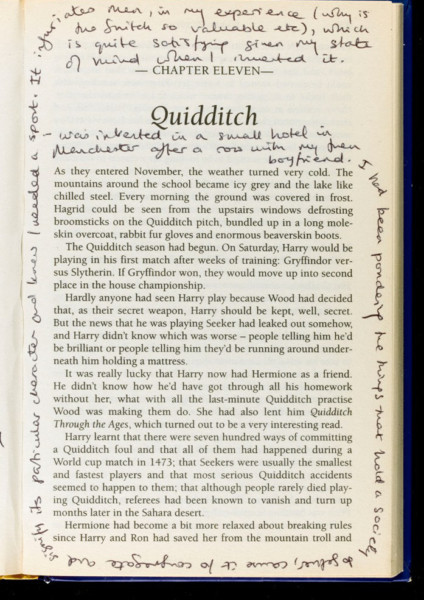My impression is that it is not a bad as it seems at first sight.
Firstly the idea that one key player can potentially dominate the game isn't a fatal flaw, for example in cycling and motor-sports the lead rider or driver respectively have a special role even though they are still very much collaborative team sports. Even in team field sports there is often a 'star player'...as noted in the comments this could be a quarterback in American Football, a fast bowler in cricket or a specialist place kicker in Rugby.
Secondly it does seem that in leagues the number of points scored in a match matters so it can still be an advantage to have a strong team who can rack up the points. Equally there is a strong random element to how quickly the snitch is caught so if a game drags on there is more chance that the overall stronger team will win.
There are even a few mainstream real-world sports which aren't so different for example in association football (soccer) matches tend to be low scoring and can easily be won by a stroke of luck against the run of play. Again cricket a game played where scores rack up to the hundreds and overs, balls, wickets and runs are counted it is still perfectly normal for a match to end in a draw and one really good player can dominate.
Indeed there is one match in the books where Harry has to keep an eye on the wining margin for the sake of the overall league result, this means not only not catching the snitch himself but preventing the opposing seeker from doing so too. You can also imagine a situation where you have more defensively minded seekers who are more focused on preventing the other seeker from catching the snitch untill his team have built up a winning margin.
Similarly you can see the beaters as the link which make the game make a bit more sense as they can act either defensively or offensively and target/protect either seekers, chasers or both so strong chasers may attract more bludger attention from the opposing beaters and take the heat off the seeker.
We also have to bear in mind that most of the Quidditch we see in the books is under 17 intra school level and so can't be really expected to demonstrate the full nuances of the professional game and most of the games we do see are there to demonstrate the unusual skill of the main protagonist. In fact the only professional game described in any detail is the World Cup Final in Goblet of Fire where the result goes against the snitch capture.

